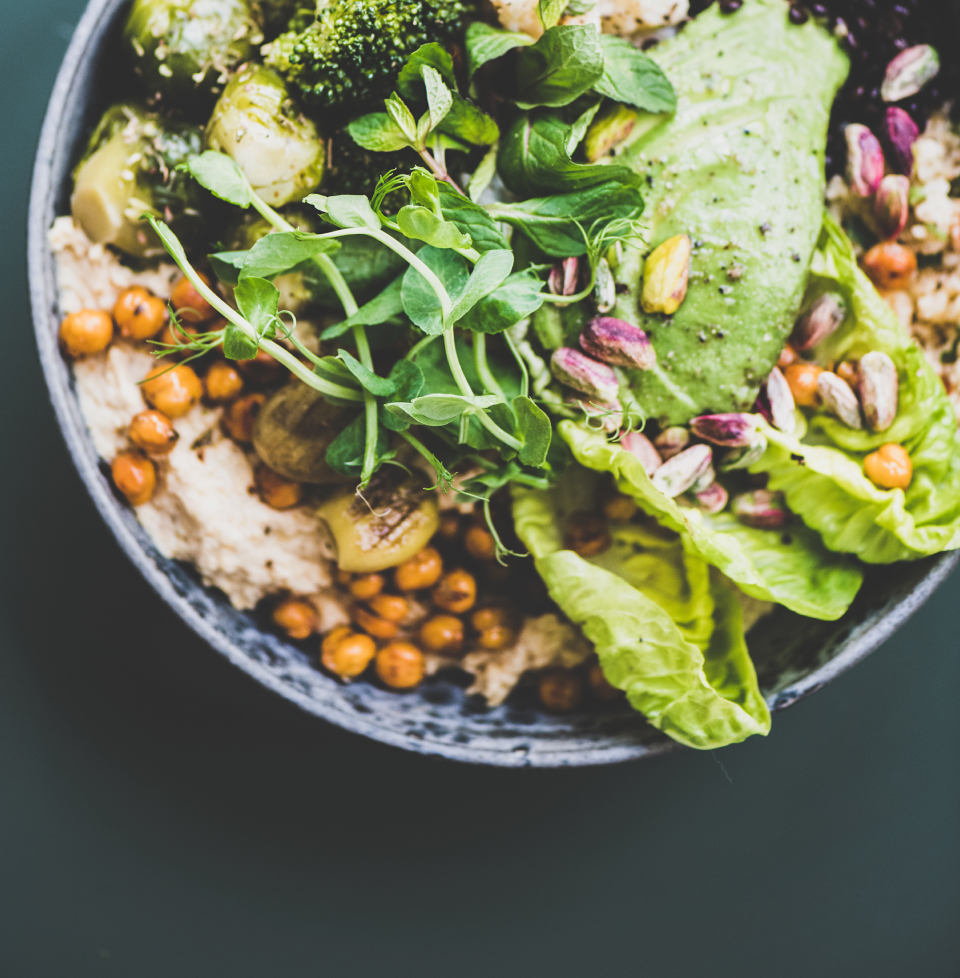Health Benefits of Eating Plant Based
Before you start picturing a plate full of nothing but lettuce, let’s make it clear that plant-based eating encompasses a wide range of foods. There’s a world of flavours and meals to be had!
So let’s dive into the world of plant-based eating, and uncover some of the fantastic health benefits that come with embracing this diet. Whether you’re looking to completely change your diet, or just starting to add more plants to your plate – this is for you.
What is Plant Based Eating?
A plant-based diet focuses on foods that are derived from plant sources. This may include foods such as fruit, vegetables, grains, pulses, legumes, nuts and even meat substitutes such as products made from soy.
There are different interpretations of what a plant-based diet should look like, but ultimately, the main point is that all or most of your diet is focused on foods that come from plants.
What are the Benefits of Plant Based Diets?
- Promotes a Healthy Heart
A diet heavy in plant-based foods can lead to lower blood pressure, reduced cholesterol levels, and a decreased risk of heart disease. In fact, recent studies have found that those who improved their diet by eating fewer animal products were 61% less likely to develop heart disease. [1] - Good For Your Gut
Foods such as vegetables, fruits, legumes and grains are great for promoting good gut health. Research shows that this diet promotes the development of more diverse and stable microbial systems.[2] In effect, this leads to better digestion and a boosted immune system. - Mood-Boosting Foods
Nutrients found in fruits and vegetables (like folate, vitamin B6, and antioxidants!) all play a role in brain health and mood regulation. It isn’t a quick fix, but research shows that high intake of foods such as berries, and leafy vegetables can have a positive influence on mental health.[3] - Weight Management
Plant-based meals can help you maintain a healthy weight. Fruits and vegetables are naturally low in calories, high in water and fibre. This means they fill you up, without using up a lot of calories! That’s not to say plant-based = healthy. It all depends on how you manage your meals and snacks overall. - Good for the Planet
Eating a plant-based diet isn’t just good for you as an individual, it can also help the planet too. Generally, these diets have a lower carbon footprint compared to meat-heavy diets and help us to halt deforestation, reduce water use and pollution and reverse nature loss.[4]
Ready to Change to a Plant Based Diet?
You don’t have to cut out animal-based products overnight: there isn’t a one-size-fits-all approach here. Some people may go fully vegan and plant-based immediately, whilst some will embrace a flexitarian lifestyle and just add more plant-based meals into their week. If transitioning gradually and experimenting with different meals makes it easier to get started, do it that way.
Here’s some ways to get started if you’re wary about jumping straight in!
- Take a look at the available resources online. You’ll find countless blogs, YouTube channels and social media personalities offering various recipes and meal plan ideas to help you get started.
- Take a look at plant based recipe books. You can find these in most shops selling books, but may also be able to try them at your local library.
- Change up your meal proportions. Add more veg to your plate and reduce the meat portion – don’t use it as the centrepiece.
- Have one plant based day of eating each week to begin with, and gradually increase it.




